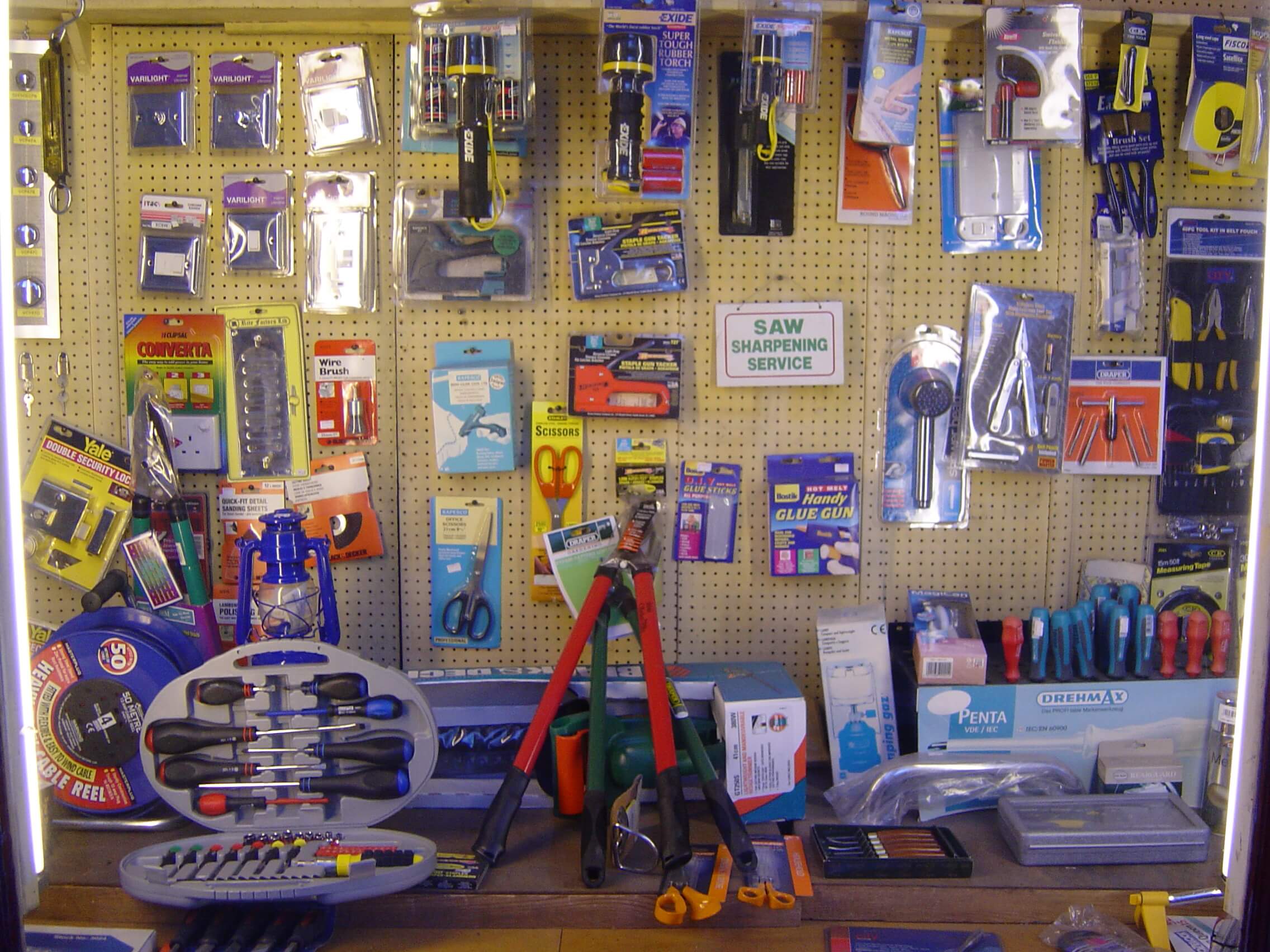Like all small businesses, the biggest hurdle to opening a hardware store is competing with eCommerce giants and brick-and-mortar retailers. The competition is fierce, from Home Depots and Lowe’s to sole proprietorship hardware retailers. However, hardware business are still emerging for small businesses nationwide.
With the housing industry lately evolving, there is an increase in demand for overall construction equipment daily.
Thus, initiating a hardware shop business can be a lucrative venture for business if you have a background in construction or are into home improvement.
In this article, you will discover the steps required to undertake while opening a hardware business of your own.
Steps To Start A Hardware Store Business
Here are the steps to start a hardware store business.
1. Determine The Target Market
It is vital to carefully consider the location of your hardware store and the local community’s requirements.
Are you targeting construction business owners, homeowners, or both? This anticipation will help you determine the type of products you need to carry and the price strategy you should adopt.
For instance, if you target business contractors, you should delegate more specialized products, such as construction materials or industrial-grade tools.
On the other hand, if you are targeting homeowners, they will heavily include them in DIY projects. This will ensure you keep equipment such as paint, electrical, and other tool supplies.
Therefore, depending on the target market, your hardware business can have different segments depending on the business you will cater to. They are:
- Gardening.
- Utensils.
- Machinery.
- Plumbing.
- Painting.
- Repair items.
- Electrical.
- Agriculture.
- Tools.
2. Decide To Open A Franchise Or Independent Store
If you plan to start your own independent store, you can completely take control of the business. Here, you will be responsible for sourcing products, marketing, and setting up the store.
Thus, this option needs a significant investment of money and time. But it also generates greater profit.
You can also opt to open a hardware franchise to change that. This will require you to include partners with established hardware store brands and pay a franchise fee in exchange for using the company’s name, business model, and products.
Therefore, one of the major benefits of a hardware shop franchise is that you get access to a proven business model and establish brand recognition, thereby making it easier to attract customers.
3. Create A Business Plan
A business plan is an important document that assists you in determining your objectives and goals, accessing the rival market, and creating your marketing and financial approaches.
Therefore, your business plan should further include an executive summary, a description of your products and services, a financial plan, a marketing plan, and a market analysis.
However, it is a good idea to conduct market research. This will help you understand your products’ market size and potential demands.
In addition, the business plan will help you make informed decisions about the hardware business’s target market budget and efforts.
4. Select A Legal Entity
Selecting a business entity is another early step that you need to consider when opening a hardware store.
Thus, it is critical because it creates an overall impact on both tax reductions and business debt.
Therefore, when opening your hardware store, you can choose from a few business structures: a partnership, a limited liability company, or a sole proprietorship.
Unlike a partnership or sole proprietorship. An LLC offers personal liability protection to avoid the risk of individual assets if anything happens to the company.
The company’s name will be decided based on its nature. Thus, your business would require a signboard to indicate that people should visit. With Sign Makerz, you will get the best board and customizable services that fit your preferences.
5. Choose Suppliers
The supply chain is an important factor to consider prior to opening. This can also be conditioned on whether you are operating independently or in a franchise.
Either way, organizing a productive stock needs to be a major focus.
Furthermore, many constructors look for materials they plan to utilize throughout the construction project. This requires you to stock up your inventory so that clients do not face a shortage of materials.
To ensure smooth logistics and manage stocks, contact a trustworthy vendor.
6. Source Products
When opening an independent hardware business, you need to determine the types of products you will carry and where you will source them.
Therefore, you can plan to work with distributors or wholesalers to obtain the best process for bulk purchases.
Similarly, it is essential to offer a wide range of products to meet customers’ needs. However, be sure to emphasize high-quality items that will differentiate your hardware business from the rival market.
In addition, you can also plan to offer exclusive discounts on branded items to attract customers. So, to make your store stand out, you need a good signboard that will make the store visible. Thus, you can create Custom Signs and design an attractive board for the store.
7. Open A Business Bank Account
When you have already registered for the trade license, separating the business expense from the personal one is vital.
In order to do so, you need to open a new business bank account. Some banks might not allow you to use a personal account for business transactions. In this situation, it becomes crucial to have a business bank account.
Unlike a personal savings account, a business account lets you manage your finances with a debit card.
So, be mindful of the business bank accounts that may be quite strict regarding account balance and manage them regularly.
8. Promote The Business
Marketing strategies play a crucial role in the success of any business, including a hardware store.
Thus, advertising in local publications can significantly increase the store’s visibility among the community, making more potential customers aware of its offerings.
Similarly, creating a user-friendly and informative website is another vital strategy. It serves not only as a marketing tool but also to provide potential customers with necessary information about the products and services offered.
In addition, networking with local contractors and businesses can help establish a referral system. This system potentially leads to repeat business and stronger community ties.
Conclusion: Manage Your Store Successfully
Thus, following the above-mentioned steps can help you get off the right foot with how to start a hardware store. But, if you want to open your store to be profitable, consider consistent fixtures in your business, as you need the right tools and processes in place.
In addition, you need a robust system and tools to manage inventory, pricing, store operation, purchasing, and managing reports.
So, consider the steps and initiate your business plan from today.
ADDITIONAL READING:
- How To Start An Event Planning Business?
- How To Start A Pest Control Business?
- How To Start A Handyman Business?




IT Security And Compliance For Small Businesses: Benefits
5 July, 2024
[…] How To Start a Hardware Business: A Complete Guide […]